“We need to learn how to live”. Interview with Prof. Witold Orłowski about the idea that to understand modern world we need to learn how to change ourselves continuously.
Social-economic life of Pomerania region revolves around Olivia Business Centre. Here, there are many conferences and workshops, which aim is to integrate, exchange knowledge and inspire one another. Very often, keynote topics focus on current trends, which influence business development and human capital. Olivia is a place, where numerous debates and discussions are held, which deal with the most important issues concerning, for example, current social-economic challenges facing Polish inhabitants, including residents of Pomerania region. Olivia enables people to participate in events, which engage, stimulate and make them think.
On September 19, 2017 in Olivia there was a debate about an important issue: “Does Polish economy need euro?”. Gdansk Business Centre Club Lodge and PwC were the organisers of the event. Distinguished guests accepted the invitation of organisers: Prof. Witold Orłowski, chief economic advisor in PwC, former economic advisor of the President of Poland and Prof. Dariusz Filar, economist and lecturer at the University of Gdańsk, former member of the Monetary Policy Council. The following persons were hosts of the debate: Maciej Dobrzyniecki , vice president of the management board of BCC, chancellor of Loża Gdańska, Katarzyna Dobrzyniecka, head of Loża Gdańska and Paweł Ożarowski, head of PwC’s office in Gdańsk. The following persons spoke in the discussion: Michał Makowski, head of Gdańska Sotcznia Remontowa [Gdansk Repair Shipyard], Rafał Dobranowski, head of legal department in Drutex, Lidia Ziaja, export manager in Ziaja, Bartosz Ziaja, vice president of the management board in Ziaja and Robert Raszczyk, deputy managing director in BRANDS Polska sp. Ltd.
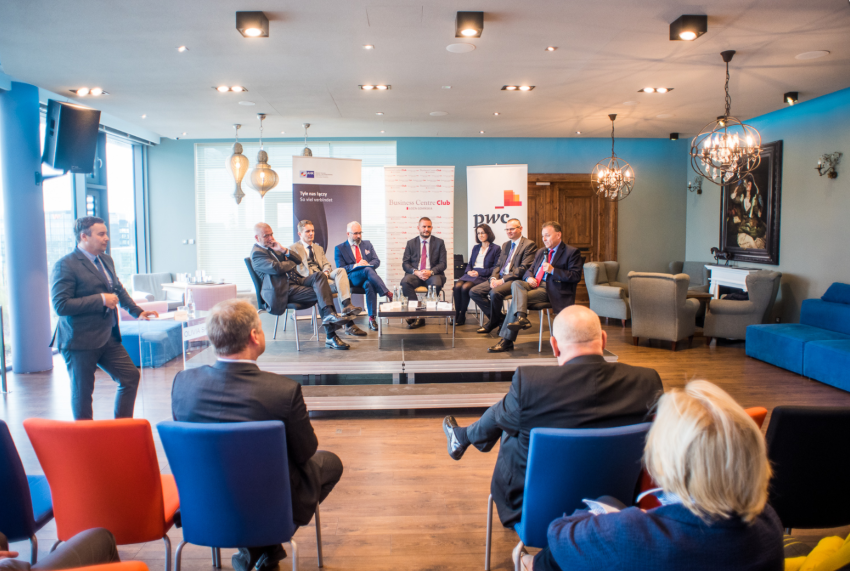
We invite you to read an interview with Prof. Witold Orłowski, macroeconomist, publicist, chief economic advisor in PwC, about the main macroeconomic processes occurring in the world, policy connected with Polish accession to the Eurozone, influence of modern technologies on communication and art of establishing relations in the world of global business, as well as about the ability to acquire one of the most important competencies of the future – openness to continuous learning.
–/–
Monika Bogdanowicz (Olivia Business Centre): Professor, you describe yourself in the following way: “I am an economist who tries to understand what is going on in the world”. Only two years ago we had a different situation in global politics. At that time, you wrote: “In Donald Trump’s economic programme there are many pleasant generalities: lower and easier taxes, less bureaucracy, more favourable conditions for businesses. However, there is also a clear suggestion to give up existing policy of openness to trade, especially to break the agreements on free economic cooperation of the USA and the countries of America and the Pacific basin. And in the background – the perspective of trade war with China. If Trump really won the elections and if he really started to consequently implement such a policy, implications could be far-reaching. To put it briefly – the world that we are used to, the world of globalisation and freedom of cross-border movement of goods and capital, could end faster than we may think”.* How does this scenario stand the comparison with reality and current development of the situation in the economic arena of geopolitics? May these forecasts become real?
Prof. Witold Orłowski: So far, nothing has really changed. I mean the fact that we are still living in the world, in which market is functioning, after all, and globalisation has not been hindered. Crisis, which began a decade ago, is not over yet. We still don’t have a normal economic situation. At the same time, we can see political and social changes, which, to a large extent, result from economic changes and are their reflection. We can notice them on the example of the growth of populism in many countries, which were considered as resistant to such phenomena, starting with the United States. There, nobody expected that you can win elections being a populist.
Up to now, Donald Trump hasn’t implemented anything he had promised. But he can still do that. That is why, we don’t know how this story is going to end. We also don’t know if after Donald Trump there won’t be another president who will be a more radical populist. We are living in very difficult and uncertain times. We will see what scenarios of world development will look like. There may as well come calm times, but also the escalation of problems.
In Europe, after Emmanuel Macron became the president of France, so after populists’ failure, people started to say that “the wave of populism has swept through, now everything is going to start to calm down, economy is turning the corner, societies start to accept what has happened and we will slowly come back to normality”. However, we can as well imagine a completely different political scenario. Scenario, in which, for example, in 3 years Macron’s popularity, which has recently fallen sharply, will amount only to 5%…
MB: That’s true, today we can observe that Macron isn’t successful in fulfilling election promises. In the long term, voters may not be able to forgive him such a failure.
WO: Then, we may have to deal with the rerun of fear, but a much bigger one. As I mentioned before, after president Trump there may appear another one, who is much more populist, not only in the area of declaration, but also in implementing their promises.
Thus, both global and gradual calming down and bigger and bigger problems, especially in western world, may occur.
Let’s add the growing importance of developing countries, I mean China and India. It is happening at the cost of the influence of the West. Here, I would like to remind you that western world is not only a political community. It is also a community of values, which we believe to be right. The world, in which western values will be on the defensive, will be a worse world from our point of view. The world, in which democracy, freedom, human rights, etc. will mean less.
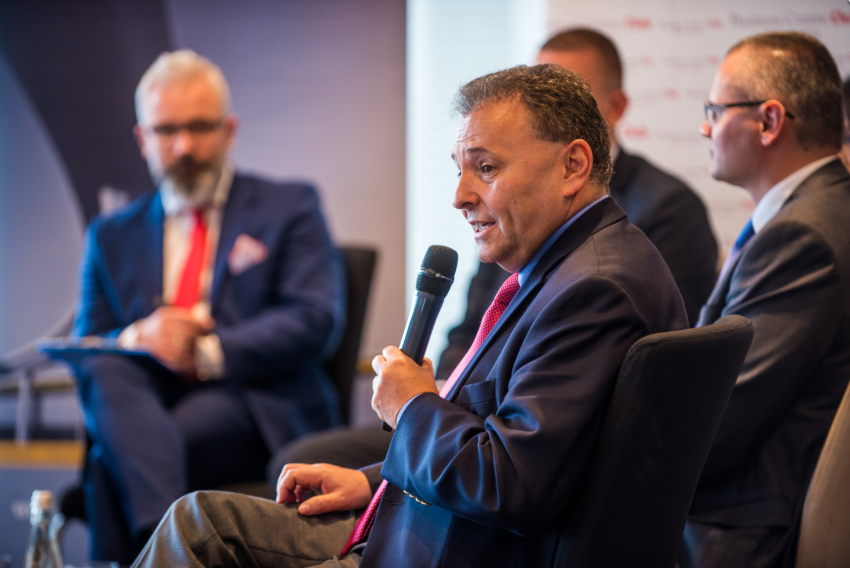
So, on one hand we have global changes, which we won’t be able to stop and which, to some degree, reduce the role of the West. On the other hand, in our western world we have two above-mentioned scenarios: calming down and restoration of economic and social harmony versus the escalation of upheavals.
Finally, we have such countries as Russia, which were expected for a very long time to become the countries of western world and to share the same values. Now, these countries are much more noticeably moving away from this vision.
MB: Moving towards closer areas of European policy, I would like to ask if it is possible that other countries will exit the EU? Is there any chance to stop these tendencies? Or will we manage to maintain the belief that the benefits from being EU member are superior?
WO: The border, which divides Europe into countries, which are very engaged in integration processes and the ones, especially in our part of Europe – however I don’t mean all countries from our region – in which there is no such an engagement, is becoming more and more clear and visible. Unfortunately, Poland belongs to the group of countries, in which societies start to be less convinced of the point of European integration.
That is why, there appear questions concerning whether the situation will be calming down and we will be coming back to normality, harmony and cooperation or whether we will be inflaming the situation. Right now, we don’t know what will happen, so both positive and very negative scenarios are possible.
In this context, let’s take into account also global problems, for example the problem of emigration. This is not our choice, but the situation, which will probably last forever. In Africa, we have to face a continuous population growth and evolving climate changes will be surely “crowding” continent’s residents out. Then we may have to face another, intensive emigration waves. These problems are of significant importance.
Some of them are out of our control, some of them are challenges, in which we participate and which were brought about by us because we are a society, which belongs to the group of western countries and European Union.
MB: We are meeting in a situation, where there is no binding decision concerning introducing euro in Poland. Does Polish economy need euro and which benefits could we have if Poland made the effort to enter Eurozone?
WO: The issue of euro is neglected by our politicians. According to them, it is a dead issue which will never come back and will never be important. But I can perfectly imagine that in 5 years the issue of euro will still be open. Perhaps our entering the Eurozone will then come at a higher cost than now. Today we could do it without much effort, if we only wanted to.
We are the member of European Union and we committed ourselves to adopt a common currency of EU. I am convinced that regardless of problems euro may have, it will always be a strong currency and the Eurozone will be the core of European market. I can’t state unequivocally when it will happen, but I think that sooner or later Poland will want to enter the Eurozone once again. Even if today we declare that we are not interested in euro and the majority of Poles agree with such a statement.
Overall, in my opinion, there is more good than bad in introducing euro in Poland. The main benefit for such a country as ours is that we have an access to cheap capital, with the help of which we can modernise economy and develop faster. If a country uses euro in the right way, it develops faster. Of course, the last decade taught us also that there are some traps connected with this currency.
MB: Can economic development of Poland soon draw level with leading EU countries?
WO: I don’t know whether Poland will draw level with Germany in our lifetime. However, I think that in the case of using right policy, entering Eurozone would accelerate this process. I am rather certain of that.
MB: We are on the threshold of new academic year, that is why I would like to ask about the relations between education and new technologies. New technologies are more and more boldly entering this environment to make time devoted to learning more flexible and reduce spatial distance. Do students, who visit universities only two times in a semester, lose the chance to establish real relationships with lecturers, mates or, for example, with their potential business partners?
WO: The world is changing and this is always accompanied by the assessment of direction of changes. Usually, if we are used to something, we think that “other” world is worse. In the past, we were used to a direct contact, that is why we think that contact via electronic tools and the Internet is something worse. In this way, we certainly lose something. On the other hand, we also gain something. For example, young people claim that not benefiting from on-line world is a waste of time.
MB: What about creating relations, which are very important in business? In the virtual world, establishing real relations will be much more difficult.
WO: You need to find a reasonable compromise and remember that today, if you work in a company, which conducts business activity in many countries, people have to get used to the fact that most of the contacts are virtual. Teleconferences are replacing regular meetings and real travels. This is now a standard situation in most of the organisations. However, it doesn’t mean that real meetings will go out of date. We just need to get used to both of them and learn how to live with them, as well as be able to establish relations, despite the fact that actually more and more contacts are maintained in a different way, not during meetings in real world.
I think that everyone has had such a situation – we know somebody well, but if we think for a while, we may come to a conclusion that we don’t know what this person looks like. We keep in touch with such a person for many years, only by exchanging e-mails. However, we can also use Skype (ed.: laughter).
I think that we don’t have to feel offended by technological changes and it is not worth it. We need to learn how to derive good things out of them. We need to learn how to live.
The world is not better or worse than 20 years ago. Now it is simply different. Young people are used to keeping in touch, especially with the help of smartphones and the Internet. Whether we like it or not, this is their way to communicate with each other. In this way they establish relationships and for sure they will continue doing it in the future. We can only accept it.
Of course, sometimes there arises a problem, when persons between whom there are 20-30 years of difference are talking to each other. In such a situation, there appears a huge difference in ways and language of communication. But always understanding and acceptance are the most important. After all, the world is continuously changing.
M.B.: I would like to ask you about the most needed occupations. What is worth learning, who is it good to be? What should we choose to avoid the situation, when some years of studies go in vain and how can we effectively develop our potential?
W.O.: There is no answer to such questions. Of course, there are some professions, which are and will be needed. For example, IT specialists. The demand for such a profession is increasing rapidly. However, this is such a specialised area that not everyone can be an IT specialist.
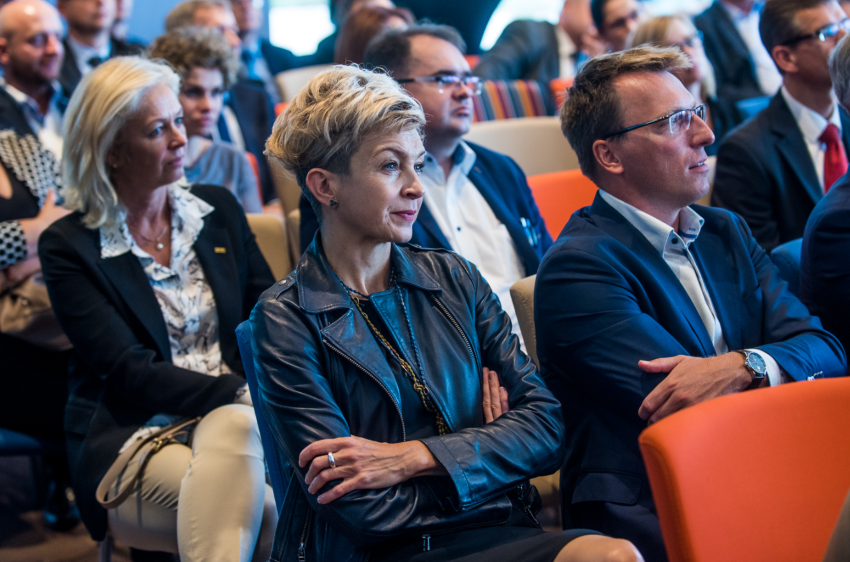
On the whole, everyone should be prepared for that, that various requirements may wait for them at work. That is why, you need to be flexible, know how to learn and want to learn. Secondly, during the whole life, you will probably have to change jobs many times, maybe even radically. It means that the ability to learn continuously is more important than having specific knowledge and profession.
In other words, specialists in certain areas will be always needed. But the ability to learn is more important than mastering a certain profession at a particular time. The truth is that profession, which we are now learning, can be completely useless in 10 years because, for example, it will be conducted by robots.
MB.: So shaping the openness to continuous learning and openness to changes carried by the world in young people’s minds in a skilful way is becoming the most important value in modern education?
W.O.: Yes, such an attitude is surely the best guarantee and policy for a good future.
MB: Thank you for this inspirational conversation.
–/–
Photos by courtesy of Trojmiasto.pl. The author of the photos: Maciej Czarniak.
Full photo gallery from the meeting is available on the website Trojmiasto.pl
–/–
Prof. Ph.D. Witold M. Orłowski – professor of economics, rector of Vistula University, chief economic advisor in PwC Polska, as well as chairman of the Board of Trustees of the National Museum in Warsaw. In the years 2010-2015 he was a member of the Economic Council of the Prime Minister, in the years 2014-2015 he was a member of the committee of Economic Award of the President of the Republic of Poland, in the years 2001-2005 he was a chief economic advisor of the president Aleksander Kwaśniewski. He graduated from University of Łódź and Harvard University. In the years 1993-1997 he worked in the World Bank. In the past, he was also an advisor of the Chief Negotiator responsible for Poland’s EU accession, Special Advisor to the European Commission, member of the Macroeconomic Council of the Minister of Finance, advisor to many national and international organisations. The author of 11 books and 200 scientific publications, popular economic commentator and columnist of major Polish newspapers. A member of the National Development Council established in 2010 by the late Lech Kaczyński, President of the Republic of Poland.
* Witold Orłowski’s blog,
http://witoldorlowski.natemat.pl/187731,donald-trump-i-globalizacja
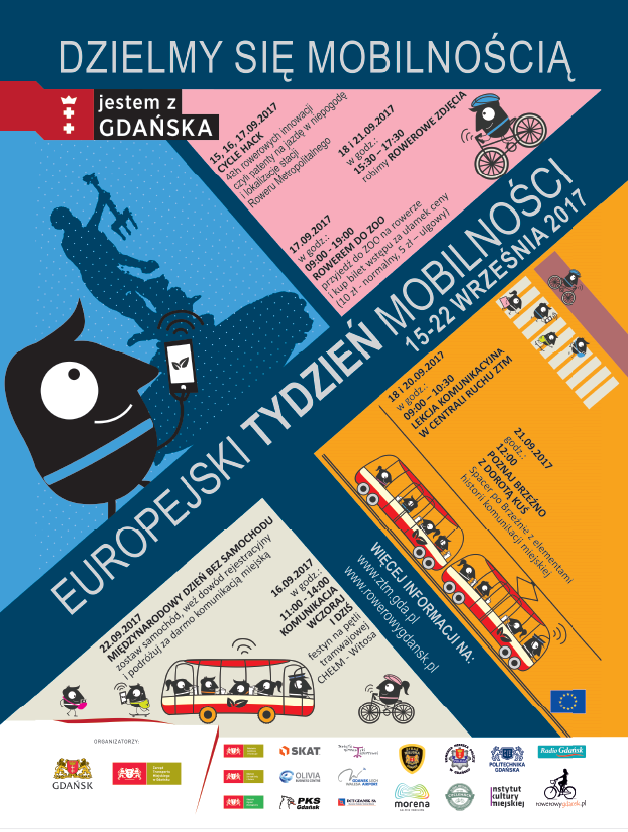

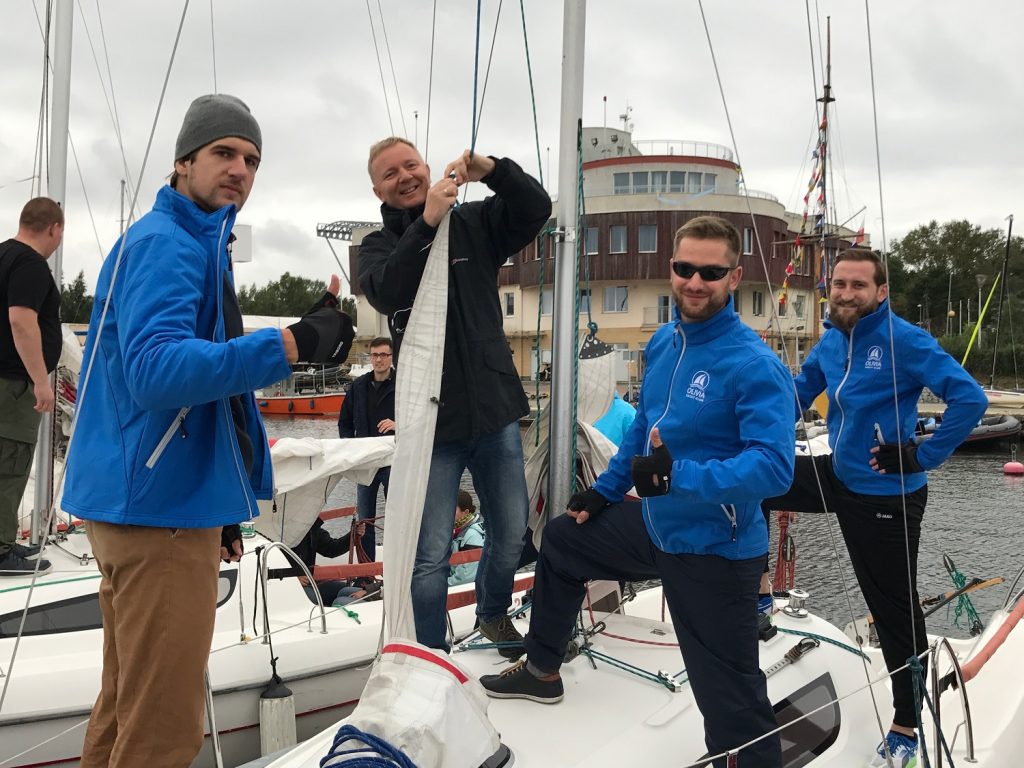 After a short briefing and getting acquainted with basic regatta’s rules, participants divided into teams and started to rig their yachts under the supervision of instructors. People with skills on different levels, even complete beginners, attended the meeting. However, on every yacht there was at least one person who was experienced as a pilot.
After a short briefing and getting acquainted with basic regatta’s rules, participants divided into teams and started to rig their yachts under the supervision of instructors. People with skills on different levels, even complete beginners, attended the meeting. However, on every yacht there was at least one person who was experienced as a pilot.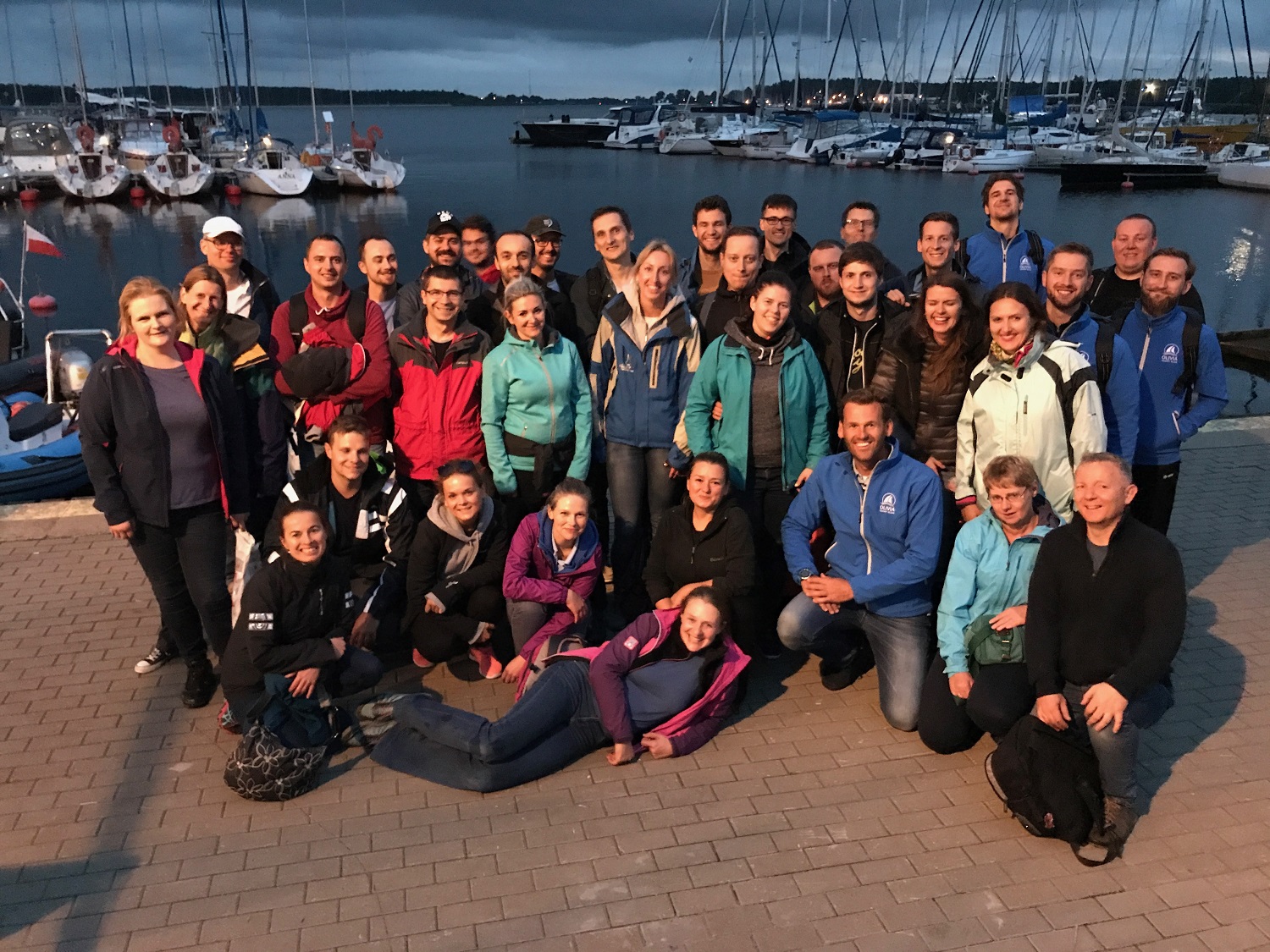
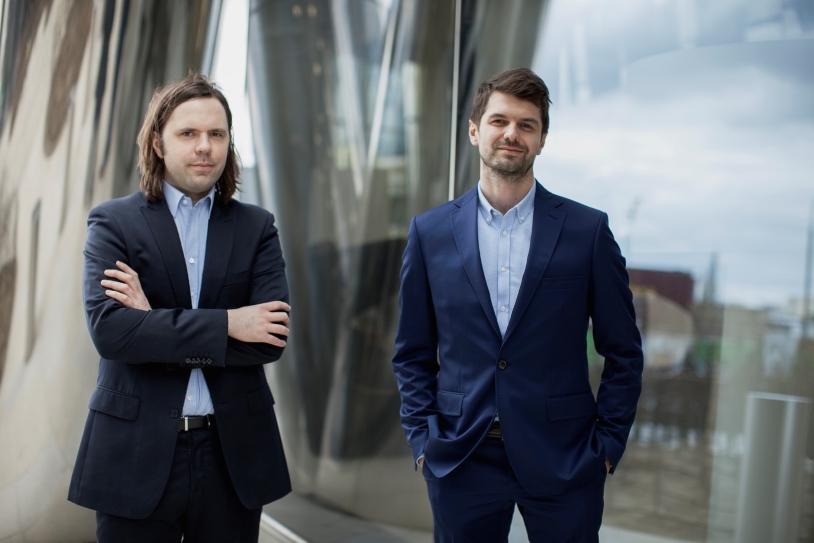
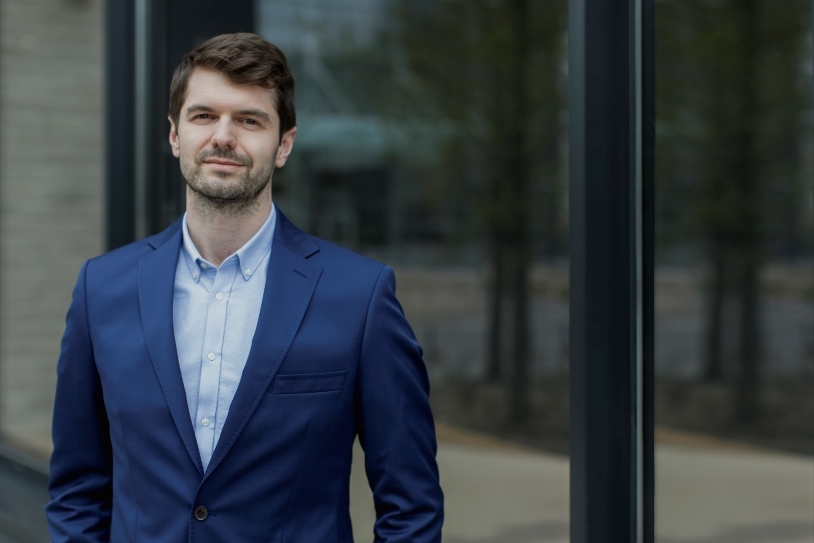

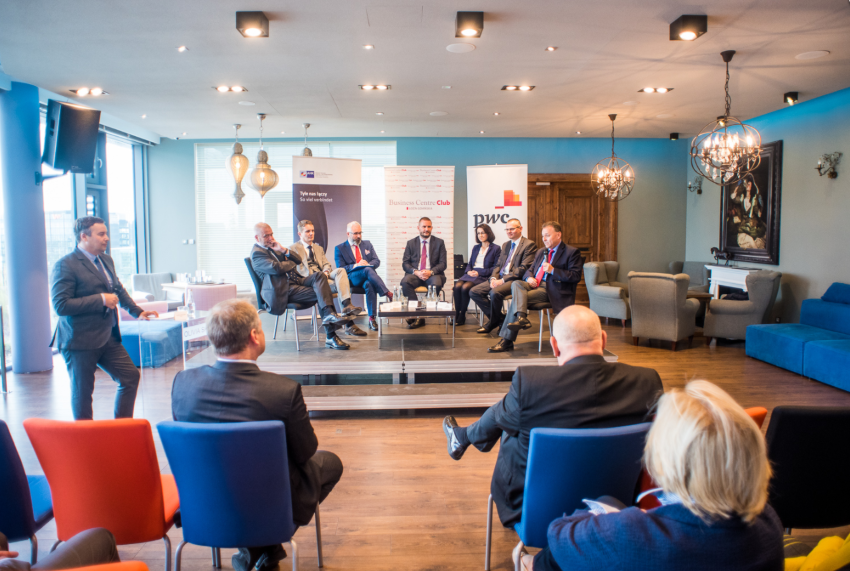
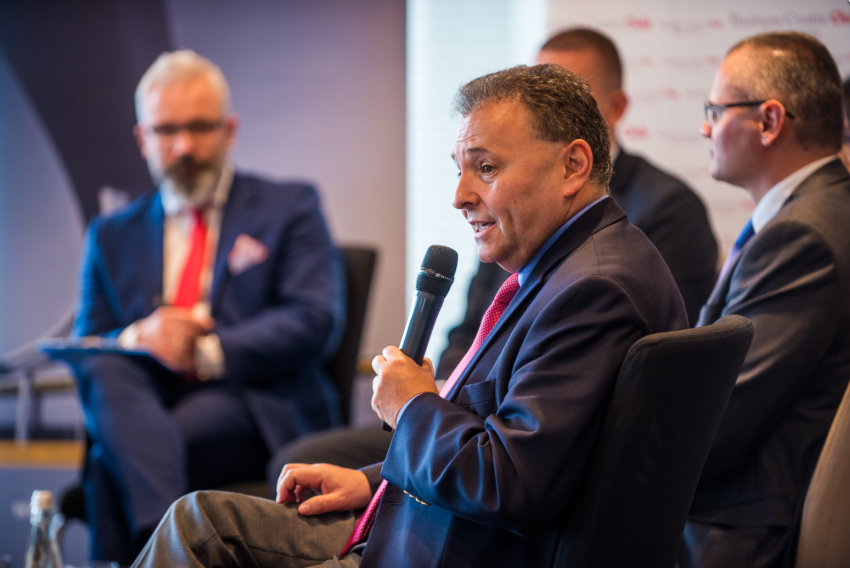
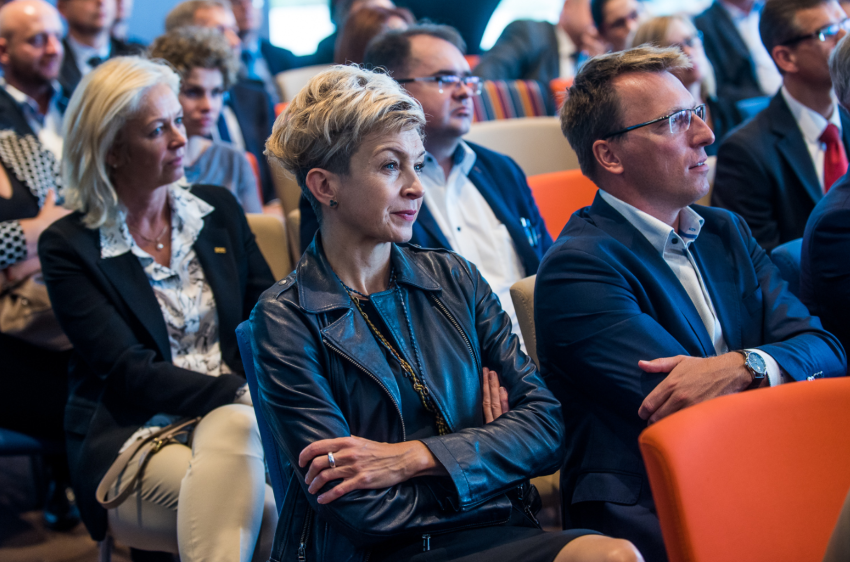



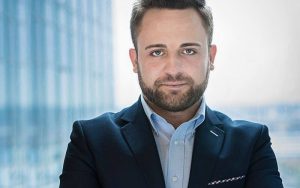 We talk to Krzysztof Kunicki, one of the panelists of the event and the organizer of the project, about the needs of HR specialists in Pomerania, what skills are a guarantee of getting a great job, why the greatest strength of every company are properly selected, talented people and why it is worth being a participant of the event at Olivia Business Centre.
We talk to Krzysztof Kunicki, one of the panelists of the event and the organizer of the project, about the needs of HR specialists in Pomerania, what skills are a guarantee of getting a great job, why the greatest strength of every company are properly selected, talented people and why it is worth being a participant of the event at Olivia Business Centre.